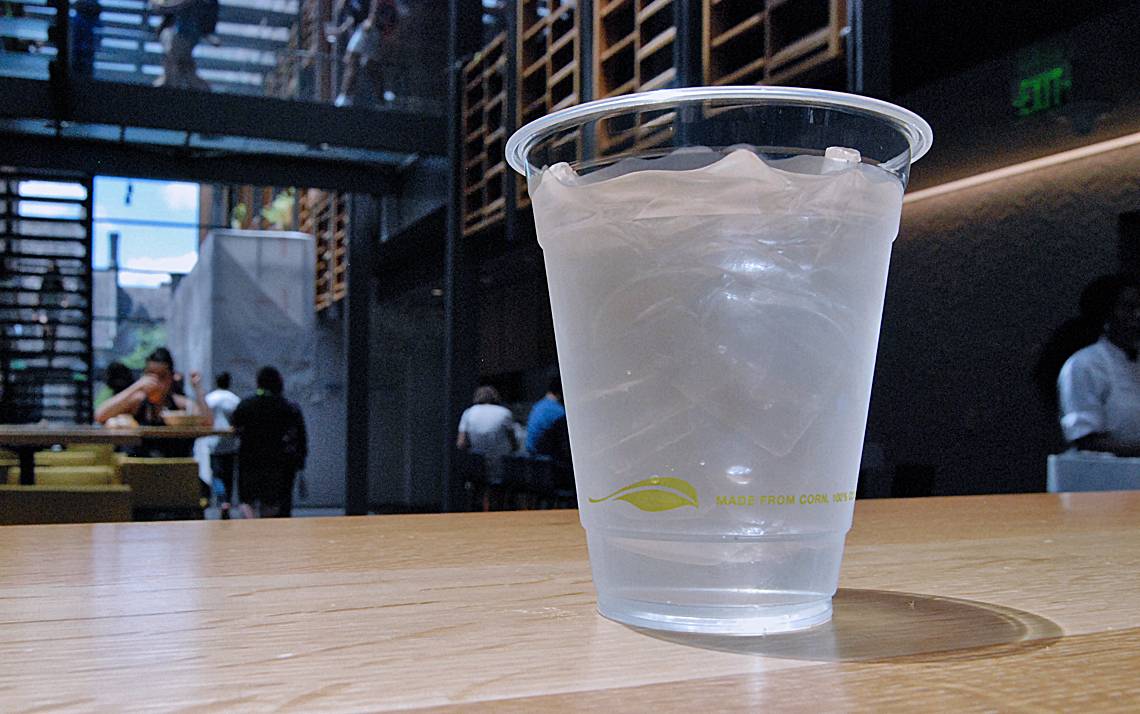Duke Dining Bans Disposable Plastic
34 campus venues take step toward sustainability

Duke became a little greener this month when Duke Dining banned use of disposable plastics from all 34 campus venues.
In a move that took effect July 1, all dining locations on Duke University’s campus are required to no longer carry single-use plastic carryout bags, plastic hot and cold beverage cups, plastic straws and plastic utensils. In recent years, Duke Dining has also eliminated its use of bleached paper products and Styrofoam.
“Sustainability isn’t optional for Duke Dining; it’s who we are and how we define ourselves,” said Robert Coffey, director of Duke Dining. “The disposable plastics ban is another step in the right direction.”
Dining venues, including vendors, on Duke’s campus will now use paper bags and utensils, straws and drinkware made from a Polylactic acid (PLA), a biodegradable plant-based substance with properties similar to traditional, oil-based plastics.
“It is very exciting,” said Marcus Carson, assistant director of Duke Dining for Sustainability and Quality Control. “It’s exciting because everybody understood why it was important and everybody was excited to get the tools that they needed to implement it.”
While Duke Dining has been leading the charge toward sustainability – earning a national award last year for its procurement practices – the ban on plastic began was inspired, in part, by a national movement to eliminate the use of plastic drinking straws often used but rarely recycled.
“My thinking was, ‘Why stop at just straws, why not go a step further?’” Carson said. “We have composting infrastructure and we have a pretty robust recycling infrastructure on campus. And there are compostable and recyclable alternatives for these products out there and the price point has come down significantly since when they were introduced. I thought it was a good time for Duke to stand as a leader in this space and make the full push.”